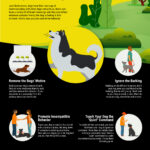Does Raw Meat Make Dogs Aggressive
The Controversy over Raw Meat and Dog Aggression
Dog lovers often debate the best diet for their furry friends. Some swear by feeding raw meat, while others are wary of the potential risks. One of the most common concerns about raw meat for dogs is whether it can make them aggressive. In this article, we will explore the evidence and arguments for and against this claim, and offer some tips on how to feed your dog safely and healthily.
Raw Meat Diet for Dogs: Pros and Cons
Before we delve into the aggression issue, let’s review some of the pros and cons of feeding your dog a raw meat (or raw food) diet. Proponents of this approach argue that it mimics what wild dogs would eat in nature, thus providing a more natural and balanced nutrition for domesticated dogs. They also claim that raw food can improve digestion, reduce allergies, promote healthier skin and coat, boost energy levels, and prevent dental problems.
However, opponents of raw food diets point out that they may carry some serious health risks for both dogs and humans. Raw meat can be contaminated with harmful bacteria such as Salmonella or E.coli, which can cause severe illnesses or even death in dogs with weak immune systems or in people who handle or consume the food. Raw bones can also pose choking hazards or damage to the digestive tract if not properly prepared or supervised.
Moreover, some veterinarians warn that a raw food diet may not provide all the essential nutrients that dogs need, especially if it lacks variety or balance. They recommend commercial dog foods that have been formulated to meet the nutritional standards set by AAFCO (Association of American Feed Control Officials), which require specific amounts of protein, fat, fiber, vitamins, and minerals.
So, where does the link between raw meat and dog aggression come from?
The Hypothesis of Carnivorous Behavior
The idea that eating raw meat can make dogs more aggressive has been around for decades, but it lacks scientific evidence. The theory behind this hypothesis is that dogs are natural carnivores and therefore crave meat, especially raw meat, which triggers their predatory instincts. This primal urge, according to some experts, can lead to behavior problems such as aggression towards other animals or even humans.
However, there are several flaws in this argument. First of all, not all dogs are equally carnivorous or aggressive. Breeds, individual temperaments, socialization experiences, and environmental factors all play a role in shaping a dog’s behavior. Secondly, the concept of “craving” is anthropomorphic and subjective; dogs do not have the same emotional or cognitive capacity as humans to desire or reject certain foods based on moral or aesthetic grounds. Thirdly, the claim that raw meat is more stimulating than cooked or processed meat is also unfounded, as dogs cannot distinguish between different types of meat by taste alone.
The Lack of Scientific Evidence
Despite the widespread belief that raw meat can cause dog aggression, there is little empirical data to support this claim. A review of published studies on dog nutrition and behavior found no clear link between raw food diets and aggression in dogs (Schlesinger et al., 2011). While some studies have reported higher levels of bacteria in raw food samples compared to commercial pet foods (Finley et al., 2007), none have shown a significant correlation between bacterial infections and aggression in dogs.
Moreover, some studies have suggested that certain ingredients in commercial dog foods may contribute to behavior problems. For example, high levels of carbohydrates or artificial additives have been linked to hyperactivity, anxiety, and irritability in some dogs (Damm et al., 2018). Therefore, it is possible that avoiding these ingredients rather than feeding raw meat can help prevent or reduce aggression in susceptible dogs.
The Precautions for Feeding Raw Meat
While there is no solid proof that raw meat makes dogs aggressive, it is still important to take precautions when feeding your dog a raw food diet. Here are some tips to follow:
– Consult with a veterinarian or a certified animal nutritionist before switching your dog’s diet, especially if your dog has any health conditions or allergies.
– Choose high-quality and fresh meats from reliable sources, such as local farms or butchers who adhere to food safety standards.
– Handle and store raw meat properly to minimize the risk of bacterial contamination. Keep the meat refrigerated or frozen until ready to serve, wash your hands and utensils thoroughly after handling, and avoid cross-contamination with other foods or surfaces.
– Gradually introduce new foods and monitor your dog’s reactions. Look for signs of digestive upset, such as vomiting, diarrhea, or lethargy, which may indicate an intolerance or infection.
– Provide a balanced and varied diet that includes not only meat but also vegetables, fruits, and supplements. Consider adding probiotics or digestive enzymes to support gut health.
Conclusion
In conclusion, there is no conclusive evidence that raw meat can make dogs aggressive. While some people swear by this type of diet for their furry friends, others caution against its potential risks. The best approach is to consult with experts and do your own research before making any drastic changes to your dog’s diet. Remember that every dog is different and may have unique nutritional needs and preferences. A healthy and happy dog requires not only good food but also plenty of exercise, socialization, training, love, and attention from its human companions. So let’s raise our bowls to our faithful friends and enjoy the journey together!



